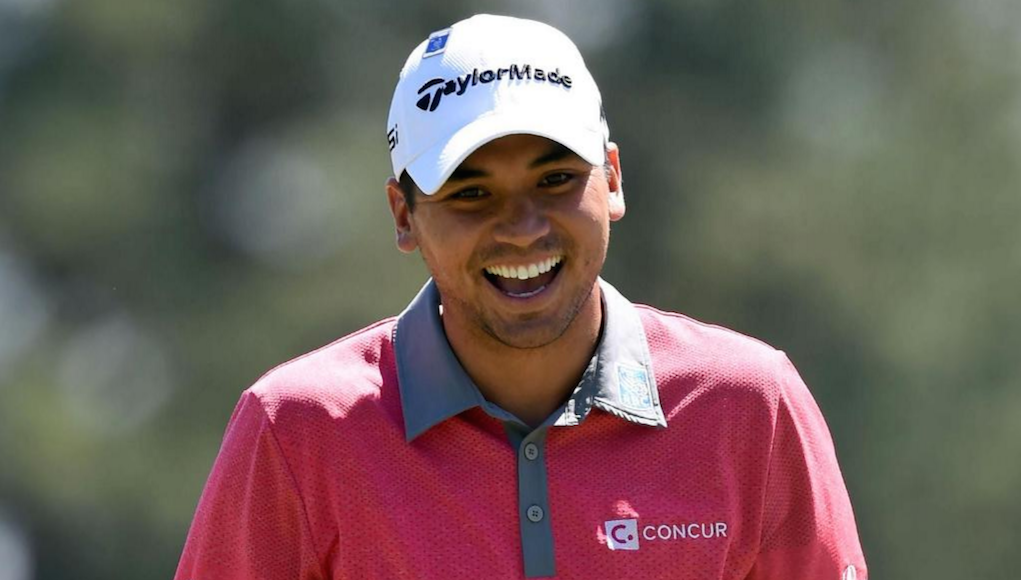Opinion & Analysis
The secret to golf happiness? Put enjoyment ahead of achievement

Sometimes things get fuzzy in golf and a reset is exactly what you need.
Very often my phone will ring, or I’ll get an “emergency” text and a player-client will be in a funk. Their focus unconsciously shifts to the many distractions around them. It’s often about things they have no control over. They’re worried about an outcome, their enjoyment disappears, everything seems difficult and the game becomes tedious. This starts the inevitable downward spiral.
In my business, it’s all about achievement — reaching higher and getting to the next level. If I don’t generate the results for a client, and help them find the potential within themselves, I’m out of a job. And, that’s the way it should be. I’m in the high-performance business and performers want results.
The tricky part here is that, humorously enough, focusing on the achievement is not the best way to go about elevating achievement.
In order to get to a high level of performance and reach set goals, there are two primary areas that are important to elevate performance and sustain it. I always refer to enjoyment as the first cog in the wheel and achievement as the second cog. The order is quite important because enjoyment is always a key to sustainable high performance. Can you succeed without it? Yes, for a short period. But, over time, when enjoyment is not at the center of performance, I get the call like the one I mentioned above.
From a young age, many golfers pursue achievement so aggressively and persistently that they actually forget about the enjoyment part. They assume that if they seek achievement — and get it — enjoyment will just follow automatically, but it’s not quite that simple.
I was a direct victim of the enjoyment vs achievement phenomena when I played professional golf. I would practice as hard and long as I could to get better, continually pursuing golf perfection that I thought was needed to play professional golf, and I slowly slipped into a state of misery, not knowing that enjoyment might be important in having a sustainable professional golf career. In retrospect, if I focused more on seeking enjoyment in the game and really enjoyed the journey, and put a central focus on the real reason why I was playing the game (because I loved it and it was fun) and created a plan around that, my career results may have been significantly different. I blindly pursued achievement, but forgot about enjoyment.
So what does that mean for you?
You might consider your perspective of enjoyment and achievement and try shifting the enjoyment to the forefront of your golf experience — no matter what your level. Think about why you play. Is it to enjoy the game or achieve something, or both? For almost all of us it is both. If it is for you, remember the order of importance; enjoyment will support achievement, not the other way around. Making enjoyment a priority will help you in your pursuit of achievement and reaching your potential in the game. Putting achievement first may not help you maximize your golf experience and could put you on a path where your original purpose (your love of the game) may get lost in the shuffle.
So, go ahead and achieve something in the game. Have a plan, work hard and make progress. But don’t lose sight of enjoying the game and your purpose for playing it. If you focus on this balance, sustainable achievement will be possible and you’ll maximize your time in the game.
This is transferable to everything you do. The more you enjoy something, often the better and more consistent you’ll be!
Opinion & Analysis
The 2 primary challenges golf equipment companies face

As the editor-in-chief of this website and an observer of the GolfWRX forums and other online golf equipment discourse for over a decade, I’m pretty well attuned to the grunts and grumbles of a significant portion of the golf equipment purchasing spectrum. And before you accuse me of lording above all in some digital ivory tower, I’d like to offer that I worked at golf courses (public and private) for years prior to picking up my pen, so I’m well-versed in the non-degenerate golf equipment consumers out there. I touched (green)grass (retail)!
Complaints about the ills of and related to the OEMs usually follow some version of: Product cycles are too short for real innovation, tour equipment isn’t the same as retail (which is largely not true, by the way), too much is invested in marketing and not enough in R&D, top staffer X hasn’t even put the new driver in play, so it’s obviously not superior to the previous generation, prices are too high, and on and on.
Without digging into the merits of any of these claims, which I believe are mostly red herrings, I’d like to bring into view of our rangefinder what I believe to be the two primary difficulties golf equipment companies face.
One: As Terry Koehler, back when he was the CEO of Ben Hogan, told me at the time of the Ft Worth irons launch, if you can’t regularly hit the golf ball in a coin-sized area in the middle of the face, there’s not a ton that iron technology can do for you. Now, this is less true now with respect to irons than when he said it, and is less and less true by degrees as the clubs get larger (utilities, fairways, hybrids, drivers), but there remains a great deal of golf equipment truth in that statement. Think about it — which is to say, in TL;DR fashion, get lessons from a qualified instructor who will teach you about the fundamentals of repeatable impact and how the golf swing works, not just offer band-aid fixes. If you can’t repeatably deliver the golf club to the golf ball in something resembling the manner it was designed for, how can you expect to be getting the most out of the club — put another way, the maximum value from your investment?
Similarly, game improvement equipment can only improve your game if you game it. In other words, get fit for the clubs you ought to be playing rather than filling the bag with the ones you wish you could hit or used to be able to hit. Of course, don’t do this if you don’t care about performance and just want to hit a forged blade while playing off an 18 handicap. That’s absolutely fine. There were plenty of members in clubs back in the day playing Hogan Apex or Mizuno MP-32 irons who had no business doing so from a ballstriking standpoint, but they enjoyed their look, feel, and complementary qualities to their Gatsby hats and cashmere sweaters. Do what brings you a measure of joy in this maddening game.
Now, the second issue. This is not a plea for non-conforming equipment; rather, it is a statement of fact. USGA/R&A limits on every facet of golf equipment are detrimental to golf equipment manufacturers. Sure, you know this, but do you think about it as it applies to almost every element of equipment? A 500cc driver would be inherently more forgiving than a 460cc, as one with a COR measurement in excess of 0.83. 50-inch shafts. Box grooves. And on and on.
Would fewer regulations be objectively bad for the game? Would this erode its soul? Fortunately, that’s beside the point of this exercise, which is merely to point out the facts. The fact, in this case, is that equipment restrictions and regulations are the slaughterbench of an abundance of innovation in the golf equipment space. Is this for the best? Well, now I’ve asked the question twice and might as well give a partial response, I guess my answer to that would be, “It depends on what type of golf you’re playing and who you’re playing it with.”
For my part, I don’t mind embarrassing myself with vintage blades and persimmons chasing after the quasi-spiritual elevation of a well-struck shot, but that’s just me. Plenty of folks don’t give a damn if their grooves are conforming. Plenty of folks think the folks in Liberty Corner ought to add a prison to the museum for such offences. And those are just a few of the considerations for the amateur game — which doesn’t get inside the gallery ropes of the pro game…
Different strokes in the game of golf, in my humble opinion.
Anyway, I believe equipment company engineers are genuinely trying to build better equipment year over year. The marketing departments are trying to find ways to make this equipment appeal to the broadest segment of the golf market possible. All of this against (1) the backdrop of — at least for now — firm product cycles. And golfers who, with their ~15 average handicap (men), for the most part, are not striping the golf ball like Tiger in his prime and seem to have less and less time year over year to practice and improve. (2) Regulations that massively restrict what they’re able to do…
That’s the landscape as I see it and the real headwinds for golf equipment companies. No doubt, there’s more I haven’t considered, but I think the previous is a better — and better faith — point of departure when formulating any serious commentary on the golf equipment world than some of the more cynical and conspiratorial takes I hear.
Agree? Disagree? Think I’m worthy of an Adam Hadwin-esque security guard tackle? Let me know in the comments.
@golfoncbs The infamous Adam Hadwin tackle ? #golf #fyp #canada #pgatour #adamhadwin ? Ghibli-style nostalgic waltz – MaSssuguMusic
Podcasts
Fore Love of Golf: Introducing a new club concept

Episode #16 brings us Cliff McKinney. Cliff is the founder of Old Charlie Golf Club, a new club, and concept, to be built in the Florida panhandle. The model is quite interesting and aims to make great, private golf more affordable. We hope you enjoy the show!
Opinion & Analysis
On Scottie Scheffler wondering ‘What’s the point of winning?’

Last week, I came across a reel from BBC Sport on Instagram featuring Scottie Scheffler speaking to the media ahead of The Open at Royal Portrush. In it, he shared that he often wonders what the point is of wanting to win tournaments so badly — especially when he knows, deep down, that it doesn’t lead to a truly fulfilling life.
View this post on Instagram
“Is it great to be able to win tournaments and to accomplish the things I have in the game of golf? Yeah, it brings tears to my eyes just to think about it because I’ve literally worked my entire life to be good at this sport,” Scheffler said. “To have that kind of sense of accomplishment, I think, is a pretty cool feeling. To get to live out your dreams is very special, but at the end of the day, I’m not out here to inspire the next generation of golfers. I’m not out here to inspire someone to be the best player in the world, because what’s the point?”
Ironically — or perhaps perfectly — he went on to win the claret jug.
That question — what’s the point of winning? — cuts straight to the heart of the human journey.
As someone who’s spent over two decades in the trenches of professional golf, and in deep study of the mental, emotional, and spiritual dimensions of the game, I see Scottie’s inner conflict as a sign of soul evolution in motion.
I came to golf late. I wasn’t a junior standout or college All-American. At 27, I left a steady corporate job to see if I could be on the PGA Tour starting as a 14-handicap, average-length hitter. Over the years, my journey has been defined less by trophies and more by the relentless effort to navigate the deeply inequitable and gated system of professional golf — an effort that ultimately turned inward and helped me evolve as both a golfer and a person.
One perspective that helped me make sense of this inner dissonance around competition and our culture’s tendency to overvalue winning is the idea of soul evolution.
The University of Virginia’s Division of Perceptual Studies has done extensive research on reincarnation, and Netflix’s Surviving Death (Episode 6) explores the topic, too. Whether you take it literally or metaphorically, the idea that we’re on a long arc of growth — from beginner to sage elder — offers a profound perspective.
If you accept the premise literally, then terms like “young soul” and “old soul” start to hold meaning. However, even if we set the word “soul” aside, it’s easy to see that different levels of life experience produce different worldviews.
Newer souls — or people in earlier stages of their development — may be curious and kind but still lack discernment or depth. There is a naivety, and they don’t yet question as deeply, tending to see things in black and white, partly because certainty feels safer than confronting the unknown.
As we gain more experience, we begin to experiment. We test limits. We chase extreme external goals — sometimes at the expense of health, relationships, or inner peace — still operating from hunger, ambition, and the fragility of the ego.
It’s a necessary stage, but often a turbulent and unfulfilling one.
David Duval fell off the map after reaching World No. 1. Bubba Watson had his own “Is this it?” moment with his caddie, Ted Scott, after winning the Masters.
In Aaron Rodgers: Enigma, reflecting on his 2011 Super Bowl win, Rodgers said:
“Now I’ve accomplished the only thing that I really, really wanted to do in my life. Now what? I was like, ‘Did I aim at the wrong thing? Did I spend too much time thinking about stuff that ultimately doesn’t give you true happiness?’”
Jim Carrey once said, “I think everybody should get rich and famous and do everything they ever dreamed of so they can see that it’s not the answer.”
Eventually, though, something shifts.
We begin to see in shades of gray. Winning, dominating, accumulating—these pursuits lose their shine. The rewards feel more fleeting. Living in a constant state of fight-or-flight makes us feel alive, yes, but not happy and joyful.
Compassion begins to replace ambition. Love, presence, and gratitude become more fulfilling than status, profits, or trophies. We crave balance over burnout. Collaboration over competition. Meaning over metrics.
Interestingly, if we zoom out, we can apply this same model to nations and cultures. Countries, like people, have a collective “soul stage” made up of the individuals within them.
Take the United States, for example. I’d place it as a mid-level soul: highly competitive and deeply driven, but still learning emotional maturity. Still uncomfortable with nuance. Still believing that more is always better. Despite its global wins, the U.S. currently ranks just 23rd in happiness (as of 2025). You might liken it to a gifted teenager—bold, eager, and ambitious, but angsty and still figuring out how to live well and in balance. As much as a parent wants to protect their child, sometimes the child has to make their own mistakes to truly grow.
So when Scottie Scheffler wonders what the point of winning is, I don’t see someone losing strength.
I see someone evolving.
He’s beginning to look beyond the leaderboard. Beyond metrics of success that carry a lower vibration. And yet, in a poetic twist, Scheffler did go on to win The Open. But that only reinforces the point: even at the pinnacle, the question remains. And if more of us in the golf and sports world — and in U.S. culture at large — started asking similar questions, we might discover that the more meaningful trophy isn’t about accumulating or beating others at all costs.
It’s about awakening and evolving to something more than winning could ever promise.



















more than one way to skin a cat.....
Apr 21, 2016 at 9:30 pm
Your not shooting the lowest round of your life, try to shoot the best you have ever on the next hole. Or play for good shots and take score outta mental equation if not for money or in tourney. Don’t beat yourself up! Botttom line, you’re on the course. Many others aren’t that wish they could be, and are not for one reason or another. I’m never going on the tour. My index is there for a reference in competitive golf matches. In the end, we all play good sometimes, and bad sometimes. Your golfing, find enjoyment somewhere while at what I consider my home away from home. There is always a way to make it fun, may be the worst round you ever had, but if you keep playing that may be the day your scorecard showing all of your 3-putts, has a hole-in-one is hanging in the proshop proving to you and others you should never give up or let it get to you.
digitalbroccoli
Apr 21, 2016 at 3:46 pm
If you can’t laugh at you own bad shots, you’re playing for the wrong reasons. Until we start making a living shooting lower scores, just enjoy the game.
John Haime
Apr 21, 2016 at 5:15 pm
Hi DB …
Professionals also need to pay attention to the enjoyment. Perspective can spiral quickly if priorities are not in the right order. This really does apply as much to those making a living playing golf.
Thanks for the comment!
MRC
Apr 20, 2016 at 5:28 pm
Enjoyed your article John. Eight months ago I set a goal to lower my index the best way I knew how to….Hard work and dedication. In three months, my index went from an eight to a five.
I was on on cloud 9 so I thought. To play golf consistently at this level wasn’t going to happen. I found myself getting upset on the course rather than enjoying my time playing golf. The fun dried up and I wanted to quite playing this awful time consuming sport. Your article put everything into perspective. I’m playing tomorrow and putting enjoyment ahead of achievement!
Thanks again!
John Haime
Apr 21, 2016 at 9:52 am
Great comment and I think alot of people feel the same way MRC. Congrats on the drop of the index – but that can be challenging when more time and effort is required to keep getting better. We’re all trying to achieve and get better – but I think the message of the article – putting enjoyment first – insures people will maximize their time in the game, stay with it and improve their level of play with a great attitude toward their game. If the fun dries up, time to change something!
Shallowface
Apr 20, 2016 at 3:16 pm
Agree. There is NOTHING enjoyable about bad golf.
Headcase
Apr 20, 2016 at 2:37 pm
Actually, this article makes perfect sense. Normally when I hit a few bad shots, the wheels come off the bus and I’ve got no way to right the ship (mixing metaphors, but you get the point). It’s a vicious circle; I’m unhappy with my play which leads to more bad shots, which leads to more unhappiness, etc
I was fortunate enough to play TPC Sawgrass last Sunday. It was a thoroughly enjoyable round, despite the howling wind. I hit a series of pretty loose shots early on the back 9, but was able to convince myself that it was a nice day and a nice course (in pretty good condition, but not quite ready for primetime yet). After a few holes that were trending the wrong direction, I took a few deep breaths, reminded myself that it’s a good day and a fun game. I even managed to play the 3 finishing holes in 1 over (pretty good, for me!).
timbleking
Apr 20, 2016 at 1:18 am
What if your enjoyment IS actually achievement while playing golf?
John Haime
Apr 20, 2016 at 1:45 pm
This is a big problem with many golfers. If they don’t achieve what they expect – they don’t enjoy themselves. Fine to enjoy and appreciate good play – but carefully prioritize enjoyment and achievement. As you know, you won’t play well everyday – and hit alot of bad shots – so enjoy the journey – good and bad – reflect – and keep building your game.
rory
Apr 19, 2016 at 8:34 pm
why not enjoy it anyways….or sell your clubs and stop playin cause obviously you missed every point Haime made…..ijs